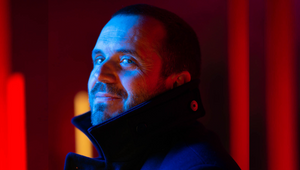
The Social Media Commandments We Can All Live By

A few years ago, during a visit to the Vatican, I wandered into St Peter’s Basilica and was wowed. Not by the Renaissance architecture, or the symbolism of this historic site, but by a small picture of Jesus Christ. Above him were two words, ‘I’m online’, and a finger pointing to his many social accounts. Jesus was socially active, and I had no idea. #Blessed suddenly took on a whole new meaning.
I had spent my formative years at an all girls Christian high school, and so my perception of the church wasn’t one of progression. To me, the church was a place where you listened to lengthy bible passages while sitting uncomfortably on wooden pews. It was a place that had often felt so disconnected from modern life, and now here I was, inside the Vatican where they were not only embracing the Internet but attempting to connect to a whole new generation.
In the years since that encounter, social media has morphed into an untameable beast.
We’ve witnessed a proliferation of deep fakes, ‘alternative facts’, racism, discrimination, extremism, bullying and ‘Revenge Porn’. Social media is now one of the most public, but least regulated platforms on the planet. Our feeds have become polluted, people’s lives have been profoundly affected and still, we wait for the Zuckerbergs and Dorseys to step in.
So, it should have come as no surprise when, earlier last week, the Church of England released their first-ever social media guidelines and digital charter. In a press release issued by the church, they said of ‘social’: “One of its many joys is that it is immediate, interactive, conversational and open-ended. This opportunity comes with a number of downsides if users do not apply the same common sense, kindness and sound judgement that we would use in a face-to-face encounter.”
Some of the Church of England’s guidelines read like the Ten Commandments; be kind, be respectful, be honest. Others have been adapted to our digital age; disagree well, take responsibility and credit others. While it is all too easy to hide your opinions behind fake names and chat rooms, these guidelines remind people that they are acting as an ambassador not only for themselves but also for society. As Archbishop Justin Welby said, “Each time we interact online, we have the opportunity either to add to currents of cynicism and abuse or to choose instead to share light and grace.”
Now, even if you aren’t a ‘person of faith’, if you have faith in restoring humanity then abiding by these social guidelines feels like a fantastic starting point. Especially after Facebook and Twitter made it very clear that misleading content would remain on our feeds. Rather than removing content that spreads misinformation, they have decided that we, the people, have the right to see it along with a warning that it is in fact, misleading. So the responsibility is truly on us not to create or spread misinformation because, apparently, we’ll be getting no help from those who can actually do anything about it.
So whether you believe in nothing, Jesus, Buddha, Allah or Beyoncé, these Church of England guidelines and digital charter are something we should all agree to abide by. And if the Archbishop's thoughts on social media about choosing ‘light and grace’ feel too preachy, then let me break it down in un-churchy words for you - in future, when you’re online, just don’t be a dick. Be nice or leave.













